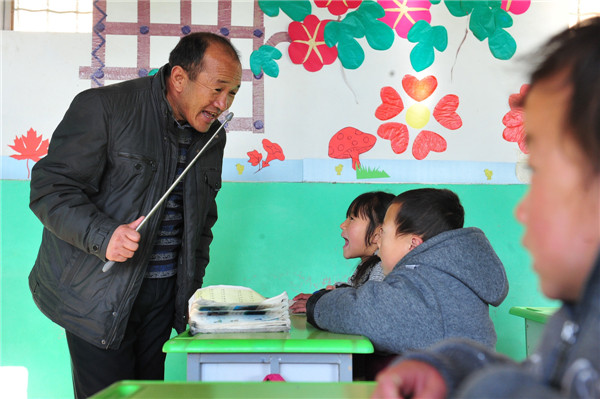School mergers to benefit students
Updated: 2014-02-21 09:23
By Cao Yin in Beijing and Luo Wangshu in Chongqing (China Daily)
|
|||||||||
In addition to standardizing teaching quality and resource allocation in public schools, the plan also signals a desire to abolish "key" schools - those with the best teachers and the most-talented students - and tackle the problems that parents face when attempting to get their children admitted to high-ranked schools.
In November, Xu Tao, director of the ministry's Department of Teacher Education, told a news conference that the ministry and other government departments will release guidelines soon. They will be aimed at implementing rotation and improving communications between teachers and principals of schools at different levels.
Xu said a systematic and lasting rotation mechanism would be established within three to five years, before expanding the trial over a larger area.
If the plan is implemented, teachers in the compulsory education sector will be managed by county-level education authorities instead of specific schools.
Quality of teaching
Cai's proposal has been hailed as a good example of how to establish a rotation mechanism. However, he admitted that when he first studied the system, he was concerned that the quality of teaching in the two schools could be affected if the mechanism was not well thought through.
"If I just transferred two or three teachers from my school to another one, I don't think the meager resources would contribute a great deal to the partner school," he said. "Conversely, if most of my teachers moved, I would be concerned about the quality of teaching at my own school."
Those concerns led Cai to formulate his proposal, and he's now looking into ways of putting his plan into effect.
Tian Shulin, head of Beijing No 80 High School, a key establishment in the city's Chaoyang district, is exploring other means of pushing the rotation plan forward.
In 2013, Tian agreed to cooperate with a school in Wenyuhe, a rural area of Chaoyang where most of the students are the children of migrant workers. She dispatched three teachers, including a school vice-president, to Wenyuhe in a bid to share teaching resources and conduct research.
"The vice-president has become the headmaster at the rural school, managing the students and developing study methods based on his education philosophy," she said. "He not only shares his teaching experience, but is also learning what our partner school needs for its daily work."
When new teachers joined the two schools, Tian arranged for them to be trained together so they could discuss theories and ideas.
"Communication is really important. The quality of teaching will only improve, and the students will only enjoy good resources, if the teachers in the schools are familiar with one another and interact well," she said.
Tian also provided overseas study opportunities for teachers from the partner school, treating them equally with the teachers at her own school. "Teacher rotation should be based on a good understanding between schools, otherwise it will just scratch the surface and lead to a dead end," she added.
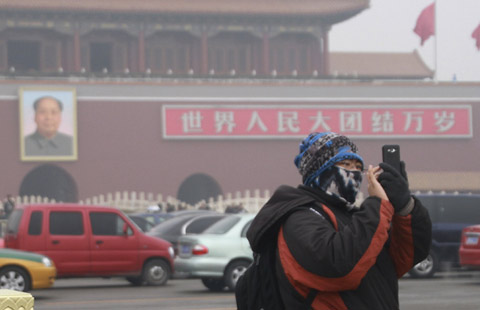
 Beijing issues 1st yellow alert for smog
Beijing issues 1st yellow alert for smog
 Beauty queen the latest victim in Venezuela unrest
Beauty queen the latest victim in Venezuela unrest
 Italy court finalizes Berlusconi divorce
Italy court finalizes Berlusconi divorce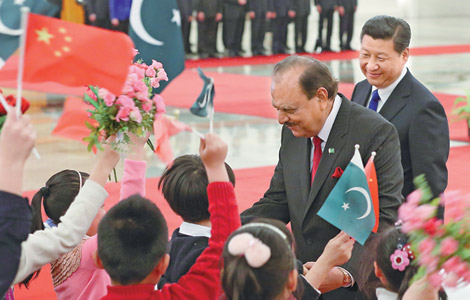
 Neighbors keen to open trade corridor
Neighbors keen to open trade corridor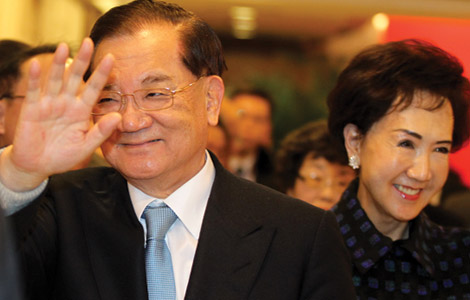
 Beijing wants more cross-Straits contact
Beijing wants more cross-Straits contact
 Spirit of adventure lives on in Antarctic
Spirit of adventure lives on in Antarctic
 Prince Charles dances in traditional Saudi dress
Prince Charles dances in traditional Saudi dress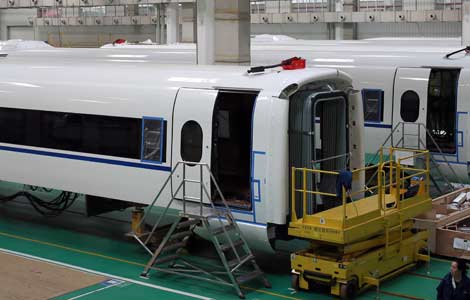
 Maglev trains speeding toward greener future
Maglev trains speeding toward greener future
Most Viewed
Editor's Picks

|

|

|

|

|

|
Today's Top News
Growth in emerging economies to decline: IMF
IPhone makes gains in China
CPPCC prepares for annual session
Shale gas in China can learn from US
China lacks innovation: experts
US needs to do more to attract FDI
Sex workers avoid HIV programs
Chinese economy endeavors to maintain stable growth
US Weekly

|

|
